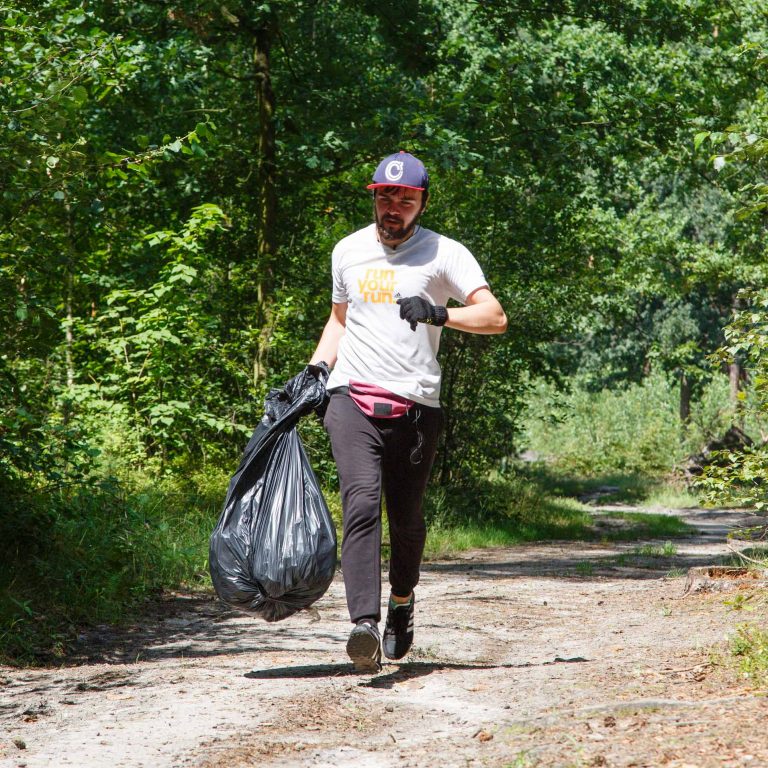In 2016, a new movement appeared in Sweden at the intersection of two popular trends, healthy lifestyle and environmentalism: plogging. People started to pick litter whenever they went running. With the help of social media, plogging quickly spread around the world. Ihor Dzikovskyi – a percussion player in the band Odyn v Kanoe supported this idea and became one of the first dedicated “ploggers” in Ukraine, trying it out in his own town Sosnivka, on the border of Volyn and Halychyna regions.
Social media trends such as these bring people closer together. An initiative that appeared on one side of the globe can quickly gain ground in other countries, regardless of borders and barriers, connecting people with the same universal values. When they go viral, ideas and movements gain the support of a wider audience and have the power to change the world.

The history of plogging
New tendency which combines taking care of the environment and keeping fit is being widely spread all over the world. The fans of running and healthy lifestyle started to collect trash while their everyday running. This activity is called plogging, which is a portmanteau word from the Swedish “plocka upp” that can be translated as pick up, and English “jogging”. Erik posted it on social media and many users liked his idea, so people started teaming up and going plogging together. In addition to basic running or walking, plogging also involves bending, squatting and stretching, which makes for a good workout.
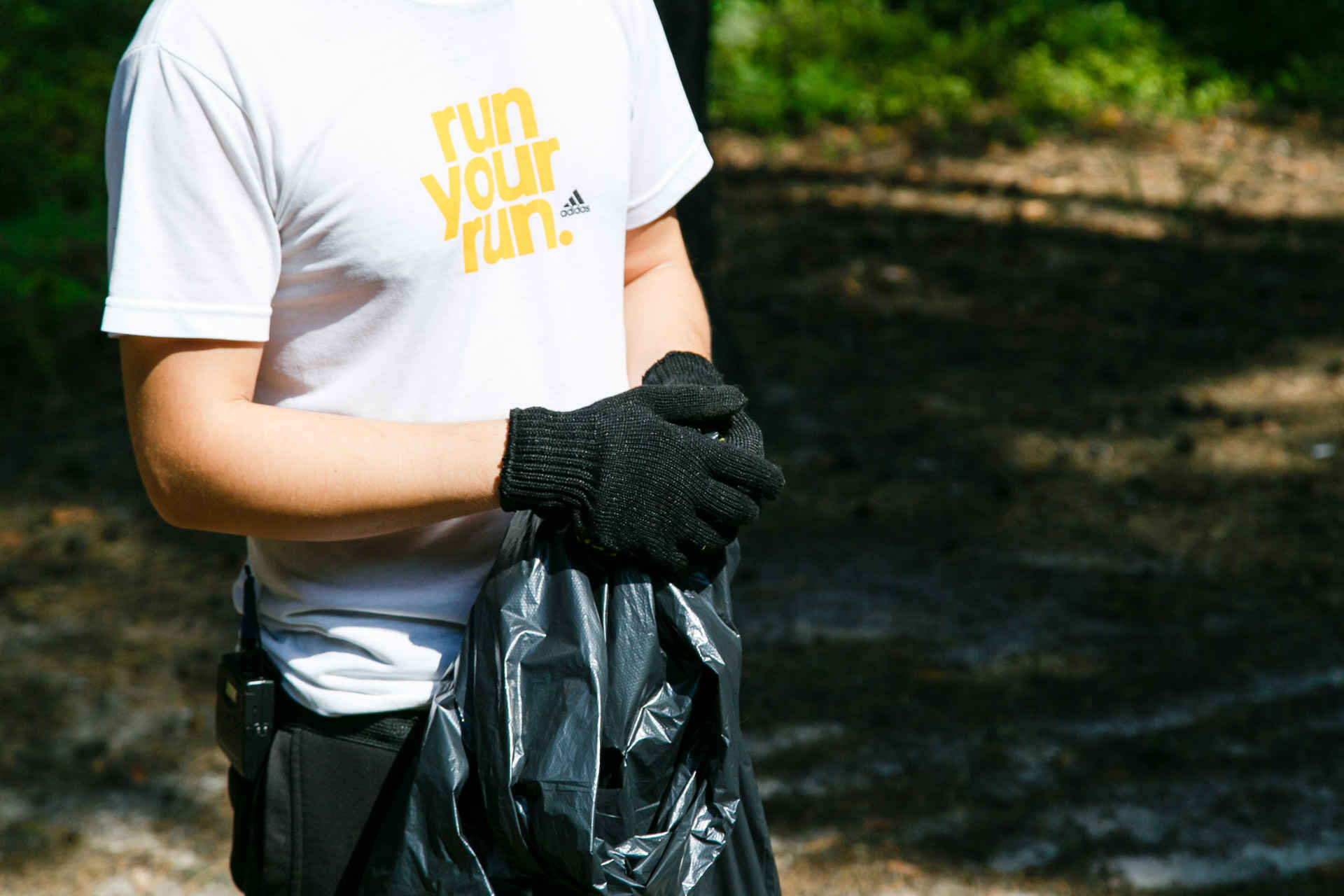
Erik Ahlström founded plogging in 2016. When he moved to Stockholm from a small town, he was surprised by the amount of trash on the streets. During his everyday runs he started picking up any litter he saw along the way. The movement spread and started trending on social media after people would take a picture with a bag full of trash and post it online with the hashtag #plogging. By posting pictures of the trash on social media, the movement aims to increase awareness of plastic pollution. Soon plogging communities started to appear and organize events in different countries.
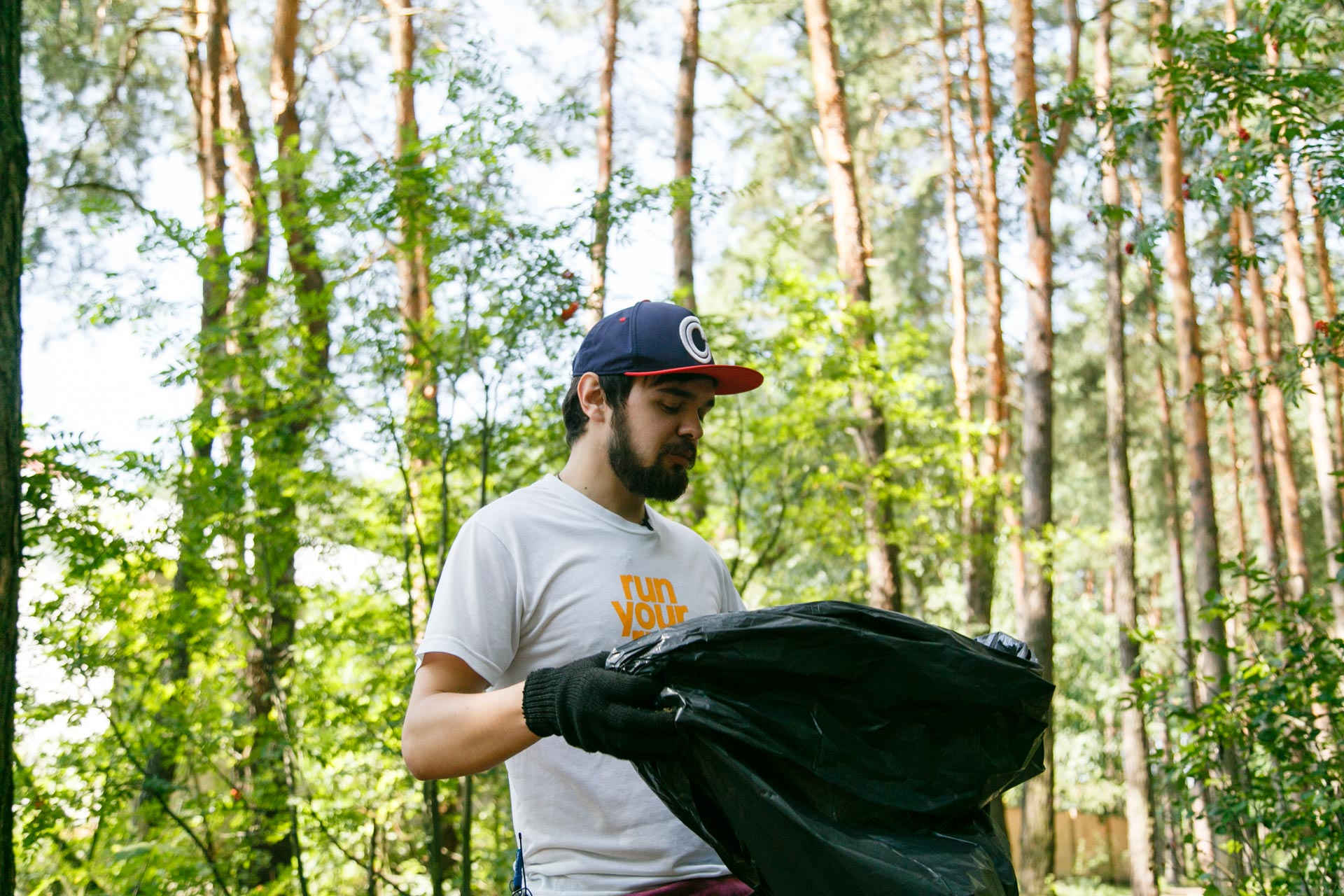
Plogging in Ukraine
Ihor Dzikovskyi is a percussion player in an indie-pop band, Odyn v kanoe, which was founded in Lviv in 2010. Ihor wasn’t a founding member of the band but took part in making the group’s second album. From the time he studied at university Ihor knew Ustym Pokhmurskyi, who later invited him to the band. He believes that his participation in the band was fate.
Ihor has lots of hobbies besides playing. Not only does Ihor work in IT, but for the last six years he has been involved in organizing the art festival Sosnafest in Sosnivka, which promotes art and crafts in the local community. Ihor describes it as an “eco-festival”, which is held in a local park with music bands and workshop sessions from various artisans and craftsmen.
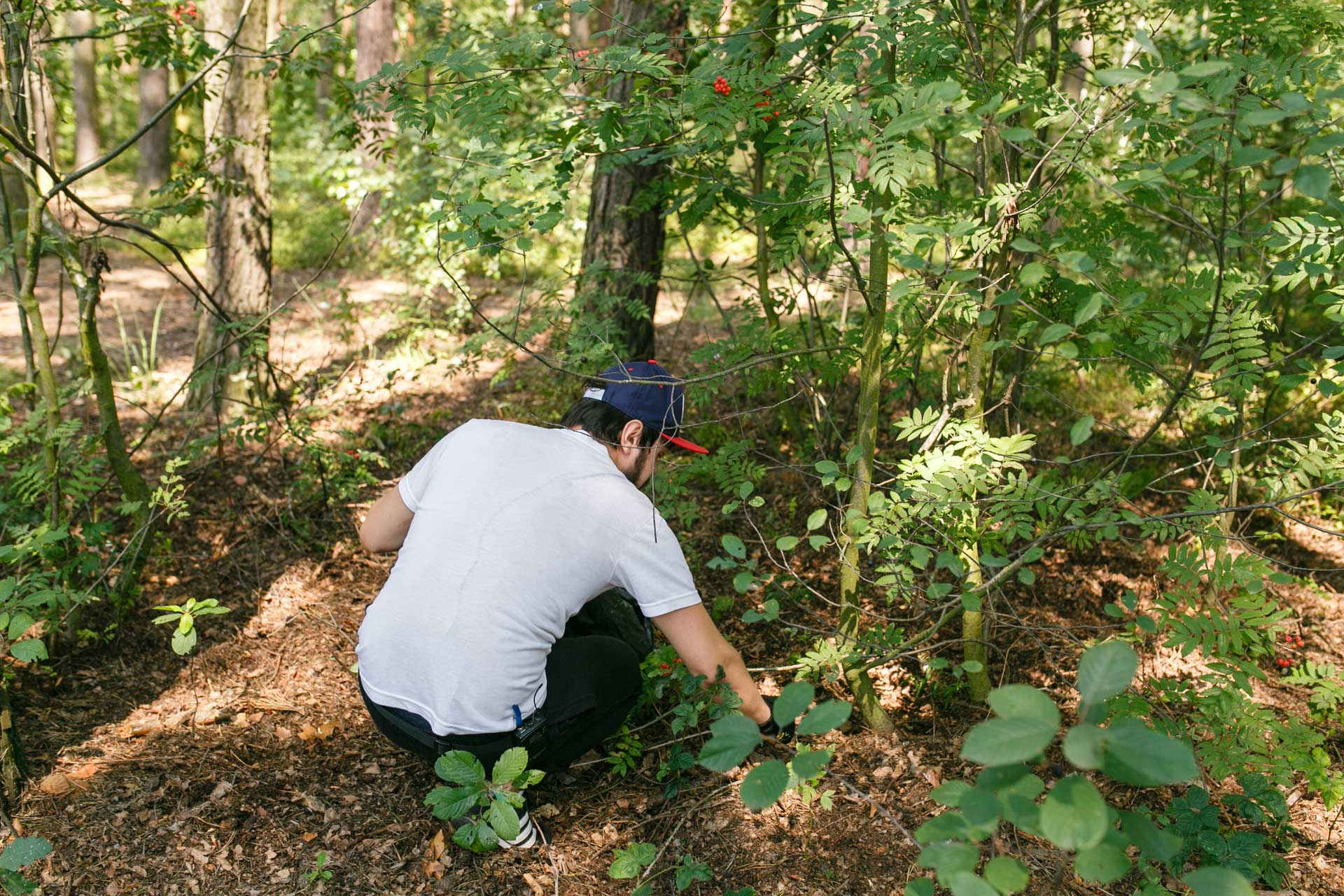
Ihor was one of the first people in Ukraine who supported the idea of plogging and started doing it:
— Once, after I returned from abroad I came across a video in my news feed. And it was so close to what I felt. I often walk around this forest with my daughter or alone in the morning. And I constantly had this thought in my head. And during my walks I was thinking about it. So when I saw the video I thought to myself: …I have to do it. At first I was just walking, but seeing litter in my local area motivated me to run. And I started running. I had never run before.
From his town of Sosnivka, and from another group in Zhytomyr, the trend spread around Ukraine.
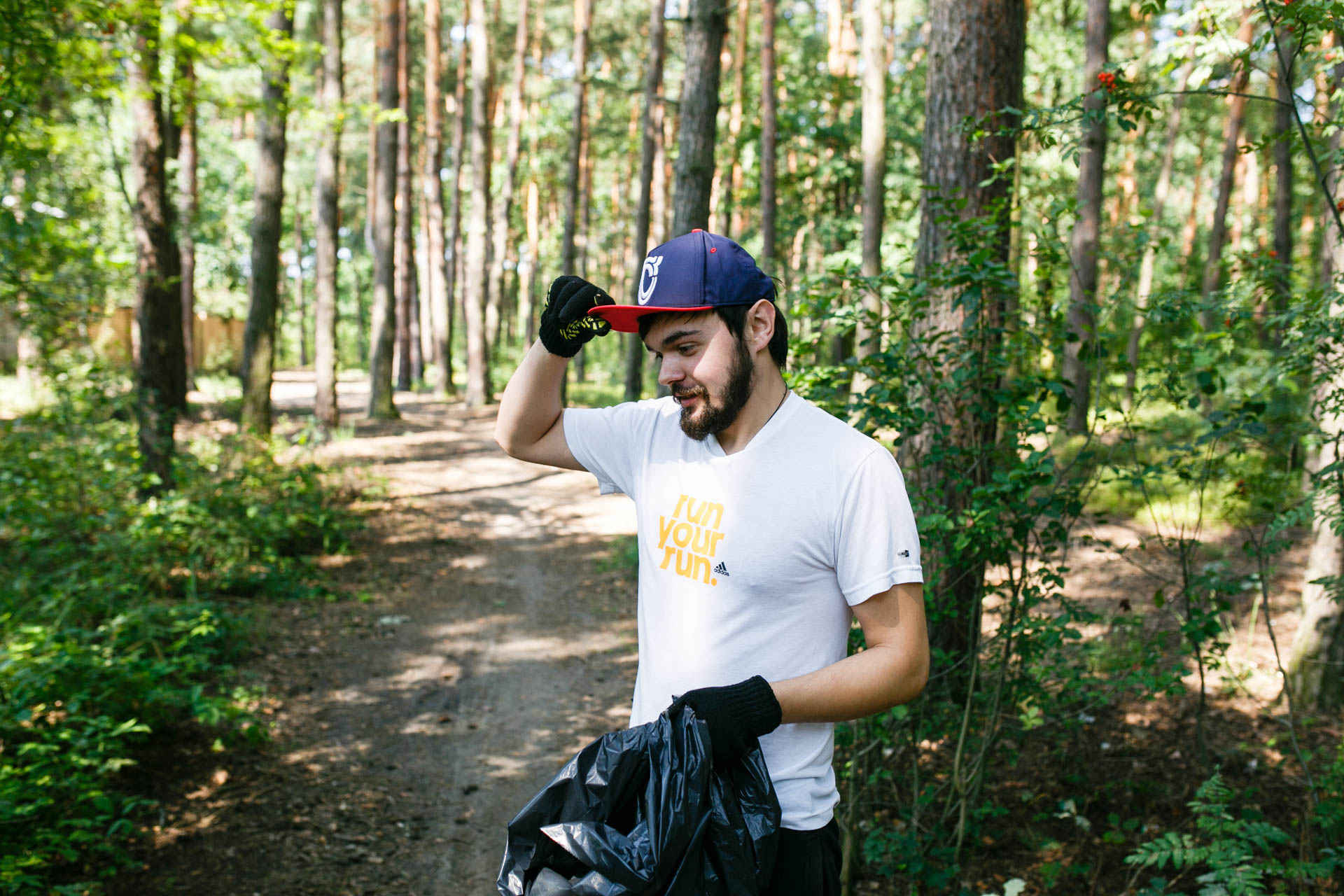
Activists in Zhytomyr started “ploggothons” – running or walking for different distances and collecting litter. After that, Ihor adopted their experience and planned five plogging routes in his town, with four of them for walking and one 5 km route around the town for running.
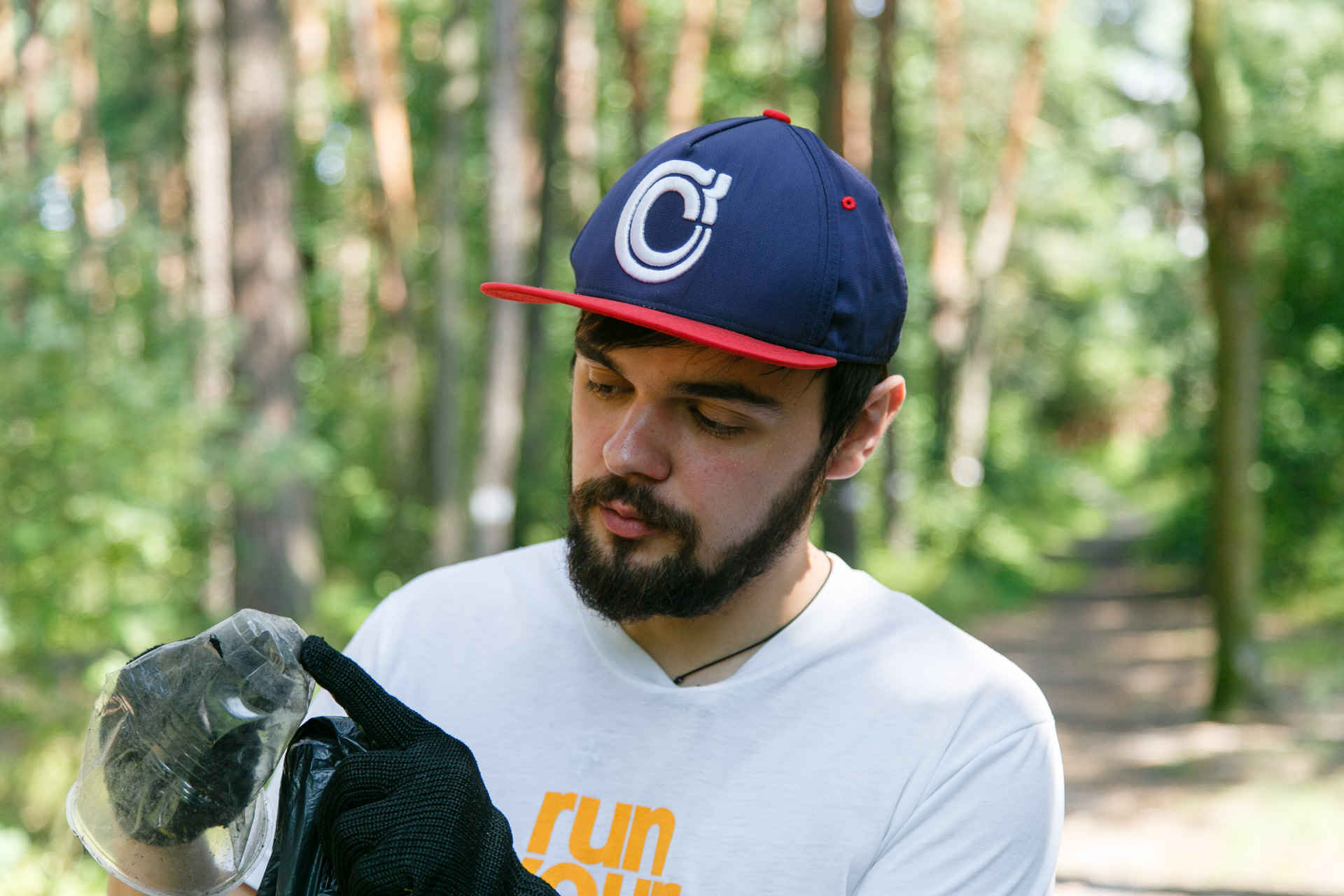
Sosnivka
Sosnivka town was founded in 1955 and was built around coal mines which are still in use today. As an alternative to working in a mine, Ihor chose to work remotely in a software development industry. He says that most of the local young people who are not working in mines do the same.
— There are not many other options. Mining is mostly suited to people who are strong and healthy. Those who have some initiatives and ideas try to create or open something: either a startup or some project. Some move away, mostly to Lviv. But there are also those who stay here and do something here, so these people try to devote at least some time to the native town.
Despite frequent trips to Lviv and tours to other cities and countries with the band, Ihor finds time to support youth initiatives in his hometown. He says that local young people are very active and the authorities are willing to endorse proactivity:
— For some reason people stay here, something holds them here just like me.
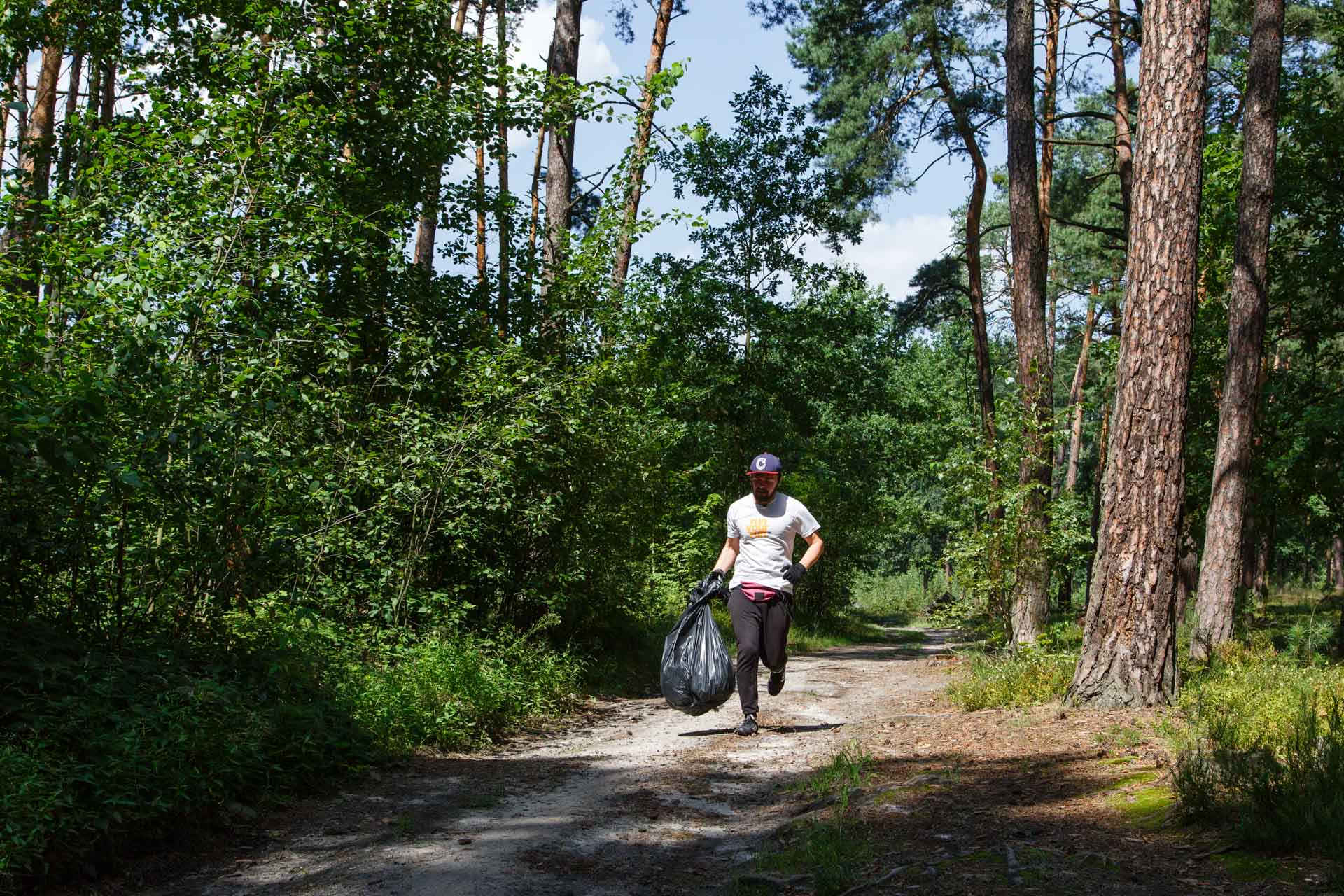
Cleaning is cool
Ihor joined plogging in 2018 by combining running and picking litter in Sosnivka. He sorts and recycles collected trash.
Ihor says that it is important to do it regularly, because only clean plastic that hasn’t been lying on the ground for too long can be recycled. Every time Ihor finds new litter in forest and parks:
— It is cool to clean, but first we have to attract attention and show people that there are other ways.
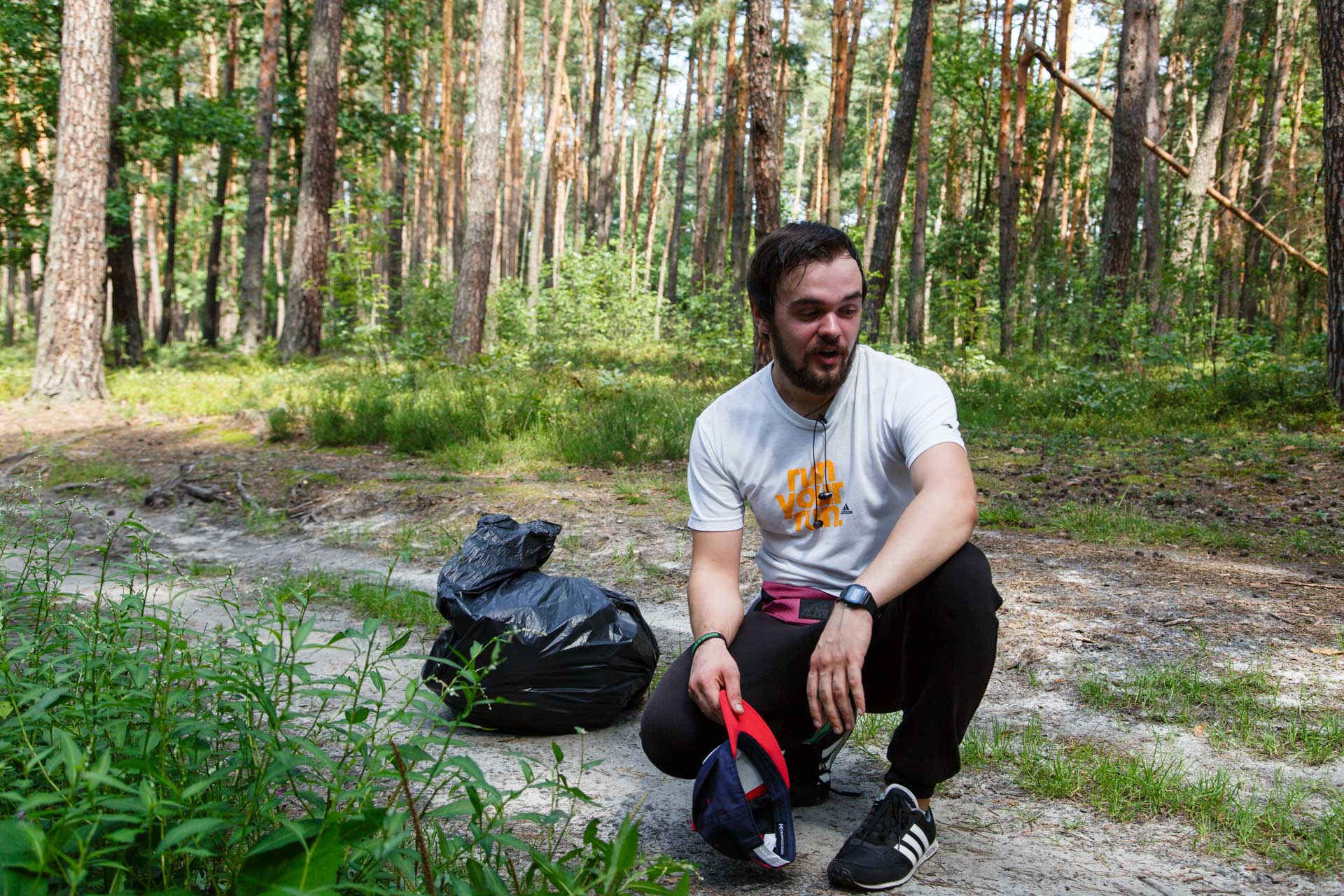
In order to protect himself from ticks, dirt and thorns of dewberry bushes, which are often full of trash, Ihor wears clothes that cover his arms and legs. He says, that plogger kit should consist of a phone, headphones, bag and gloves.
— The litter is endless. I run till I fill the bag.
The worst trash, to Ihor’s mind, is the plastic bottle. Because of its density it takes a very long time to decompose:
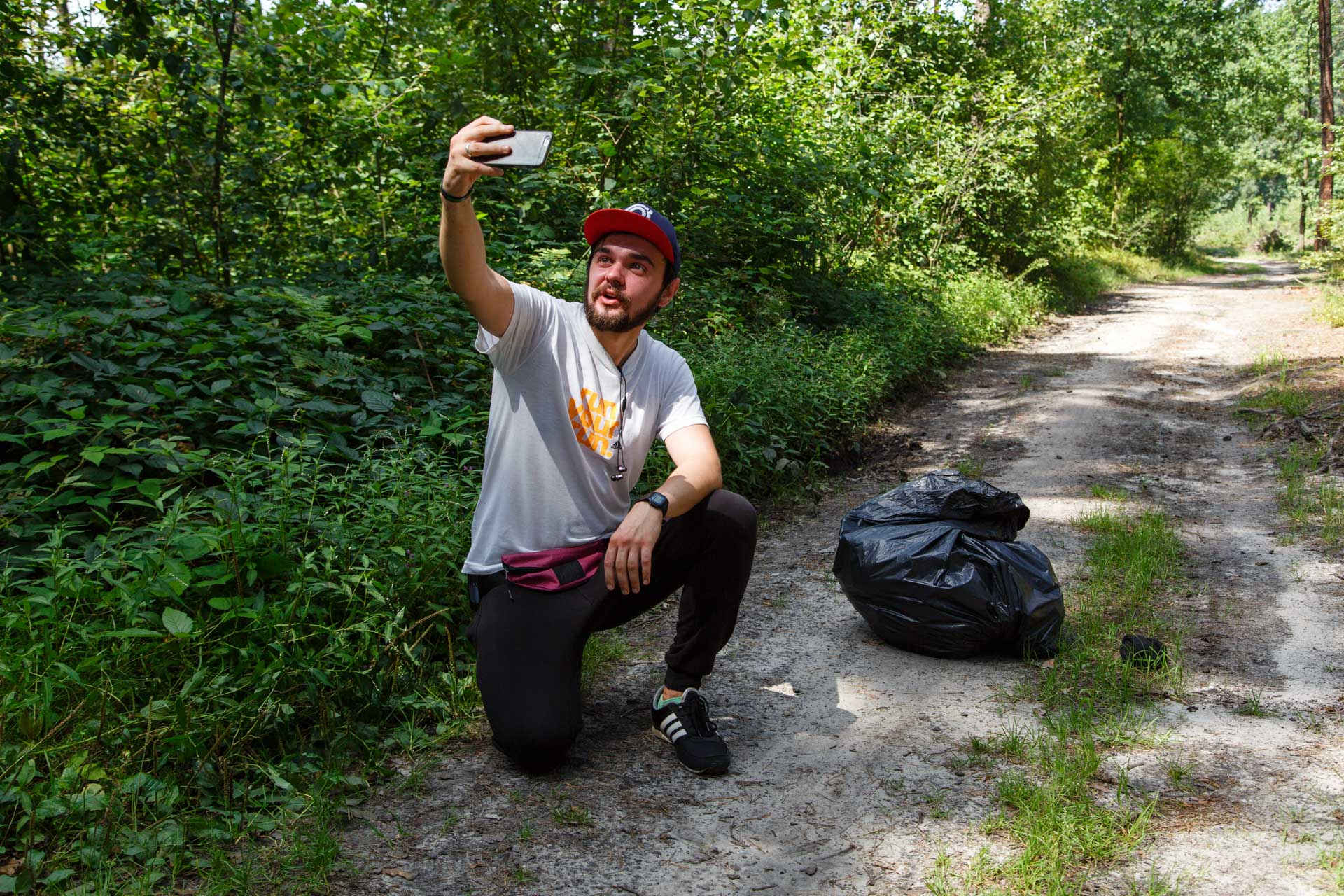
— It is just one bottle – thought 10 million of Ukrainians and one day bought a bottle of water. In general, the goal of this project, my little dream, is that plogging communities would exist all over Ukraine, and in every town, maybe once every other day, people would run and clean up their local area.
Ihor really enjoys cleaning parks and forests, which is made even better by the fresh air and the scent of pine. He calls it his destiny.
In order to promote plogging, Ihor takes a picture with his trash bag after each run and posts it on his Instagram (@sliptic) with a corresponding hashtag #ploggingukraine.
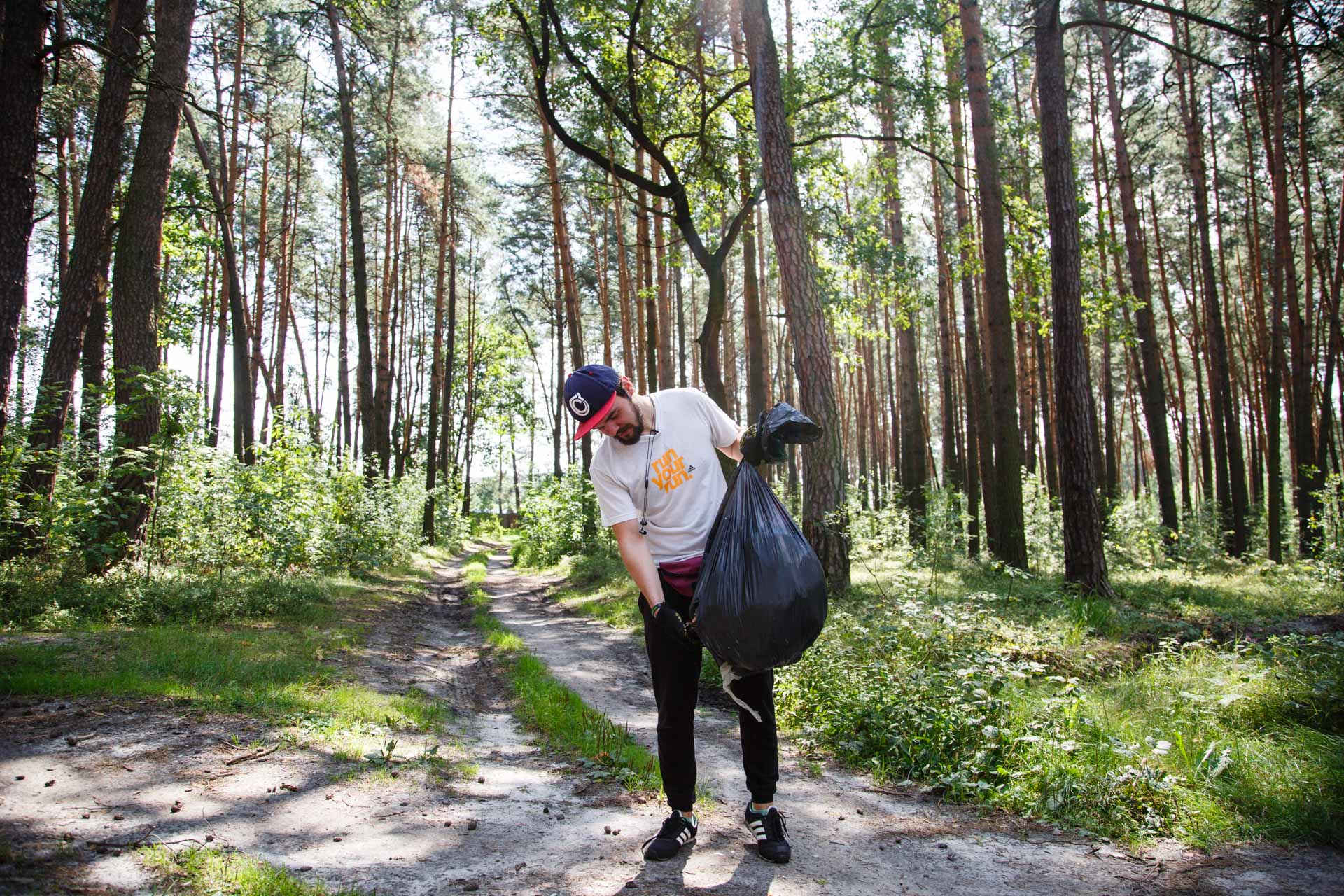
More and more people in Ukraine are joining the plogging movement and organizing ploggothons in their towns. Ihor recently took part in events in Chervononhrad and Kyiv. This summer there will be a traditional ploggothon in Sosnivka, that he is organizing together with local young people.
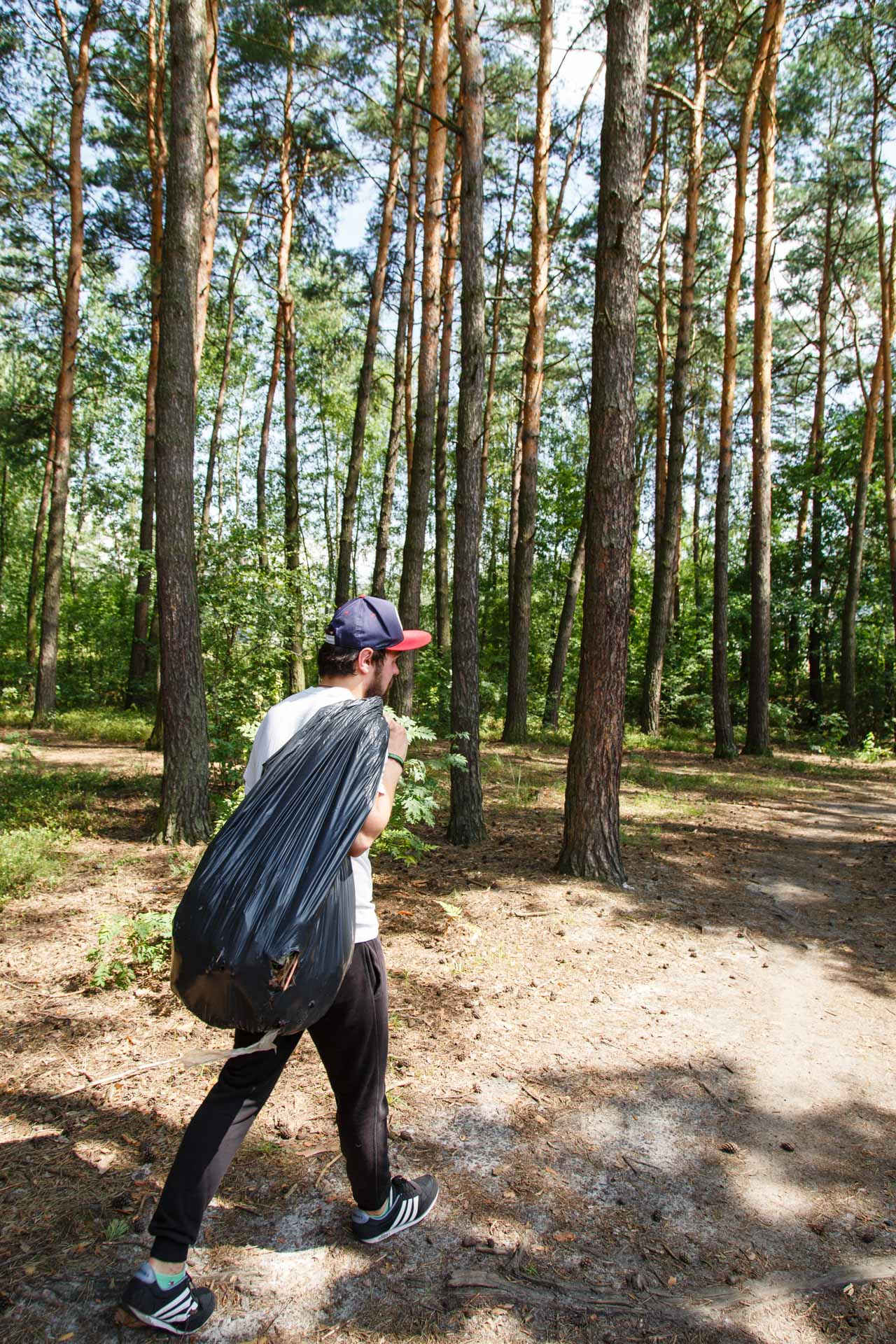
Ihor has no problem balancing concerts and plogging. His fellow band members support his initiative and always ask where Ihor has run and cleaned, although they don’t participate themselves:
— Usually, the tours are busy and we have concerts every day, but when I get some free time, I make it a plogging day. A clean up run along a park or riverside is a good way to relax while on tour.
Ihor is often joined by the people he meets while running. He says this support motivates him:
— It is most important to talk about the movement and to promote it on social media. In this way, we keep fit, clean littered areas, and also set a good example for the next generation of children, who will be influential in the next 10-15 years.

